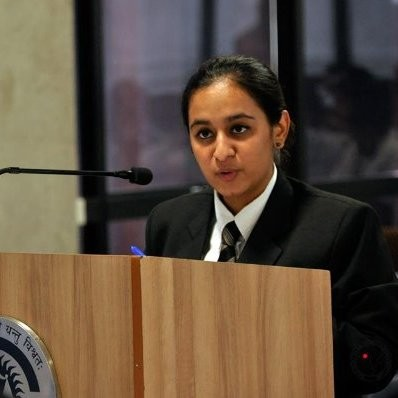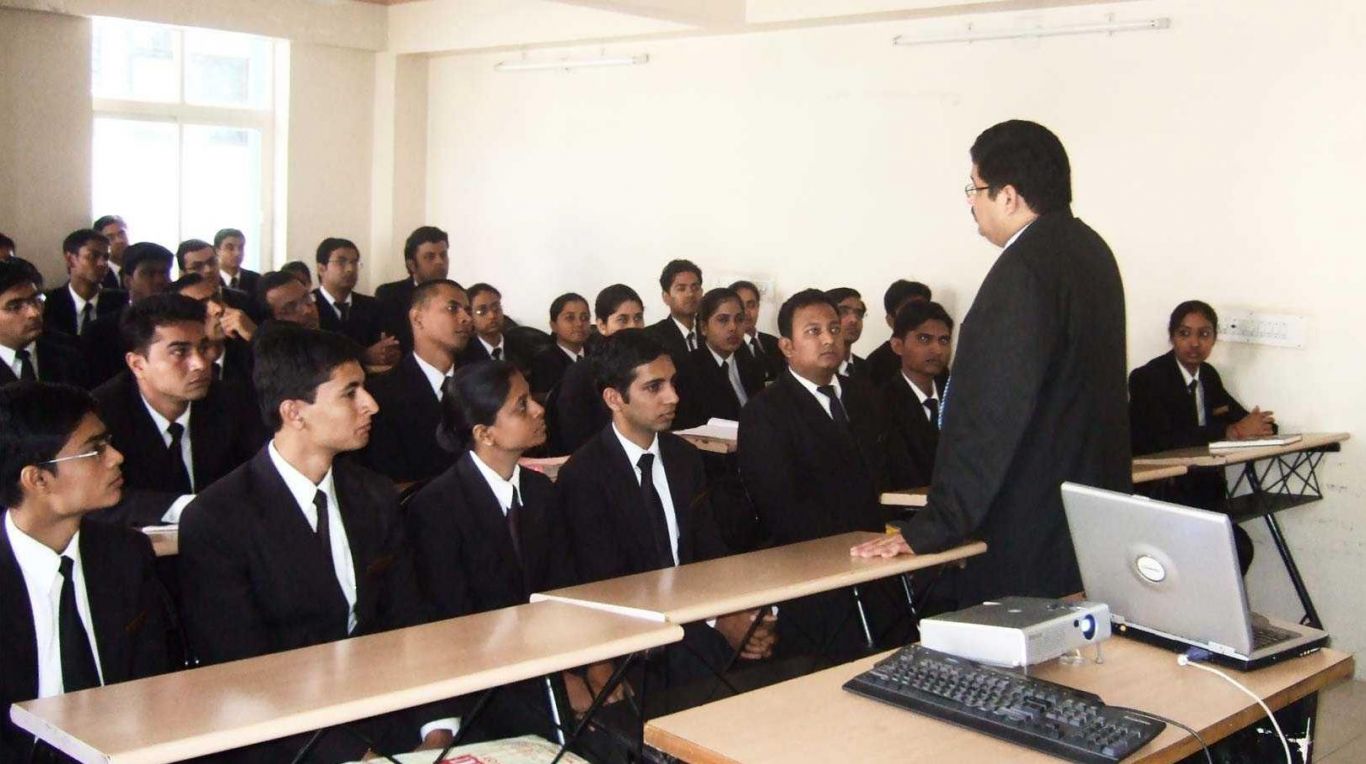Introduction
Prepares candidates from legal stream for: IBPS SO (Law), SBI SO (Law), IBPS RRB SO (Law), NABARD Grade A Legal Officers Exam, RBI Grade B Legal Officer Exam.
Are you worried about the declining job security and high competition amongst law graduates?
Are you a law graduate looking for a secure government job with a PSU bank?
Do you want a top-tier legal job that has no complicated qualification requirements?
If you are wondering whether there is an opportunity for law graduates in the public sector banks that provide job security, high pay, and assured growth over the duration of your career, then exams on the lines of - IBPS Specialist Officers (SO), SBI SO, IBPS RRB SO, NABARD Grade A Legal Officers Exam, RBI Grade B Legal Officer exams are perfect for you. The good part is that major components of these exams overlap when it comes to syllabus and pattern.
Details of Various Banking Exams
*We have mentioned in hand salaries below, but inclusive of perks, the salary is higher by a minimum of 50%.
- IBPS SO (Law) - Starting salary in-hand is around 35-40K, with all perks included it is 60k+, age limit - 20 to 30 years, LLB + AIBE + enrollment with state bar council. Freshers can also attempt.
List of banks that recruit through IBPS Exam:
- Bank of Baroda
- Bank of India
- Bank of Maharashtra
- Canara Bank
- Central Bank of India
- Indian Bank
- Indian Overseas Bank
- Punjab National Bank
- Punjab and Sind Bank
- UCO Bank
- Union Bank of India
The SO (Law) exam is consistently held every year, and you have an opportunity to work in big cities because the legal team of these banks is posted in big cities and works closely with their headquarters.
The preliminary exam is tentatively conducted in the month of December, mains in January and interview in February. The results are declared by April along with provisional allotment of the selected candidates.
- SBI-PO Exam or SBI SO Exam - The pay and syllabus of the exam is very similar to IBPS (SO) Law. Requires 4 years experience. Starting salary is about 25-30K per month higher than IBPS-SO (almost 1 lakh). Age limit: 30 years. If you are above 35 you can join at senior management scale Grade IV.
- RBI Grade B Officer - This exam has lesser vacancies but you can prepare for it simultaneously. Starting salary for the role is approx. INR 1,16,000 per month. Age limit 32 years. Requires 2 years experience
- IBPS-RRB Exam (both PO an3d SO) - You can work in one of India’s 43 Regional Rural Banks. You will not get to live in a big city, but the earnings are almost similar to that of an IBPS-SO Officer, at INR 33000 to INR 39,000 per month (basic), very similar to IBPS-SO (Law).
- You can always attempt the IBPS-SO, SEBI Grade A or RBI Grade B exam again after a year, with the additional experience of having worked in an RRB, if you want to move to a big city.
- IBPS RRB PO has huge vacancies (there were 1600 vacancies last year and it does not test your knowledge of law subjects!
- NABARD - Starting salary for the role is approx. INR 40,000 per month (in hand). Age limit 21 to 30 years. Requires 2 years experience.
You can prepare effectively for these exams by studying for just 2 hrs a day for a span of 6 months. Since you will be preparing for multiple exams at the same time, round the year vacancies would help you land in your dream job.
Why you should attempt the Bank Law Officer Exam
- Lower competition compared to exams like judiciary and civil services
- If you don’t crack IBPS-SO you can still prepare for SBI-PO, IBBI, IBPS RRB, SEBI Grade A or RBI Grade B Exam as the syllabus is complementary - reach out to our counsellors for a plan.
- Opens up opportunities for lucrative private sector jobs in the financial sector
- Preparation pattern opens up opportunities for certain non legal competitive exams such as SSC, UPSC etc.
- If you prepare as per the right strategy, then cracking these exams are a lot easier than any other exam.
Key features of the Bank Law Officers Exam
Eligibility
- You must have an LLB degree and you should be enrolled as an advocate with the State Bar Council. You should have also cleared the AIBE by the time of the interview stage.
- Minimum age is 20 years and maximum is 30 years.
- There are age relaxations for OBCs (non-creamy layer) (3 years), SC/ST (5 years), ex-servicemen (5 years), persons with disabilities (10 years).
- Within the above age limit, there is no limit on the number of attempts.
There are 3 phases - Prelims, Mains and Interview.
Prelims
- The prelims exam does not have any law subjects, it is MCQ-only.
- It covers Reasoning, English Language, and General Awareness with special reference to the banking industry.
- It is an entirely objective type, with 40 mins available per section. Maximum marks are 125. One question carries one mark each except English which carries 0.5 mark each.
- There is negative marking as well of 0.25.
- To clear the prelims, you need to clear the overall cut-off and cut-offs for each section. These are usually very low.
- In 2021 the overall cut-off was 47.5 out of 125 marks for general category. Cut-offs are lower for reserved category candidates.
- Tentative sectional cutoffs (out of 50 for reasoning and GA and for English out of 25 ):
- English: Cut-off for 2021-22 was 7.5 marks (for General/EWS category); 4.75 for SC/ST/OBC/PwBD.
- Reasoning: Similarly it was 7.5 marks (for General/ EWS category); 3 for SC/ST/OBC/PwBD.
- General Awareness: It was 8.5 marks (for General/ EWS category); 5.5 for SC/ST/OBC/PwBD. Scoring 16-18 in this is very safe in this segment usually.
- In prelims you just have to clear cut-offs, everyone who clears the cut-offs progresses to the Mains.
- Most people start preparing too late (i.e. 1 month before when the notification is out), and completely compromise their Mains preparation because of prelims, not knowing that they just need to clear cut-offs. Mains and Interview is the main challenge in this exam.
- LawSikho students start at least 6 months before.
Mains
- The Mains exam only has law subjects, MCQ-only. While this exam has cut-offs too, they are really low. You need to score maximum possible as it will count towards your rank list.
- There will be 60 questions of 1 mark each, to be attempted in 45 minutes.
- The problem in Mains is that there is no official list of topics or even subjects prescribed. IBPS simply calls it Professional Knowledge.
- Past years’ papers are also not available publicly, so candidates have no idea about this subject.
- This is the BIGGEST CHALLENGE for candidates who prepare. Based on past years’ paper analysis, there are 44 legal statutes from which questions could be asked. Here is a list of important statutes and various other topics for your reference.
- This number scares people. Most of them prepare in the wrong direction for this subject. Others mistakenly feel overconfident that they are preparing for the judiciary or UPSC, so they should be prepared for this.
- In fact, most candidates who actually clear prelims and reach the mains stage have reached here merely because of clearing the low cut-offs for prelims and not because of high performance.
- Bank exams test candidates on a completely different aspect of legal subjects than other competitive exams. There are about 15 commercial law subjects which you may have not studied at all in college!
- If you don’t know what you are going to be tested upon, you cannot prepare properly and will not be able to clear. Failure is guaranteed!
Interview
- Generally lasts for 15-20 minutes, with a panel of 4-6 senior members.
- Interview carries 100 marks. One must score 40% minimum to qualify this stage.
- The final score will be the total of marks in Mains + Interview.
- Interview is the most important component as it carries more marks than mains as well!
- The top candidates based on their aggregate performance in Mains + Interview are shortlisted for Specialist Officer positions in different banks.
- The panel usually asks questions on banking-related developments, banking-related statutes (this is the most important) and your opinions on current affairs (occasionally).
- The panel is not looking for rookie candidates who have no idea about how the world of banking works - they want to select people who are mature and understand the functioning of the industry.
- Most candidates start preparation for the interview stage after clearing Mains. At this stage, they are only able to make superficial changes at the last minute. Many of them do not practise mock interviews even at this stage.
- They do not have clarity of thought, their practical knowledge of commercial statutes like DRT, NCLT, IBC is insufficient, and communication is very poor.
- Anxiety worsens their performance during the interview.
- LawSikho students prepare from Day 1, just for 10-15 mins. Everyday. These students speak before the mirror and record selfie videos on banking-related news and commercial statutes in the syllabus on a daily basis and improve with periodic feedback. They also attend daily mock interviews after the Mains Exam.
Key highlights of LawSikho’s IBPS-SO (Law) entrance exam training program
- Minimum two live classes per week of 1-1.5 hrs each, recordings available
- Updated study materials on our Learning Management System
- Weekly timetable and target setting
- Hard copies provided, no need to buy additional books
- Dedicated preparation for interviews, start studying from mains and interview from Day 1
- Develop familiarity with different categories of questions asked through class and study materials
- All non-legal subjects covered from scratch specifically to cater to needs of law students and law graduates
- Practice assignments every week
- More than 100 mocks for prelims and mains (self-assessment) + monthly mocks
- Specialised sessions and booster mocks for last-minute revision
- Guest lectures from Specialist Officers who cleared the exam and are now working in the public sector banks
- Daily support on current affairs and financial awareness
- One on one counselling support via Zoom sessions
- Simulated exercises for interview preparation
Syllabus of LawSikho’s IBPS-SO (Law) Training Program
Part 1: Prelims
Concept and exhaustive practice modules comprising difficulty levels of easy, medium, tough and assorted on:
English Language
- Reading Comprehension
- Cloze Test
- Detection of Errors
- Improving sentence structure
- Completion of Paragraphs
- Para Jumbling
- Fill in the blanks
- Parts of speech
- Modes of narration
- Prepositions
- Active/Passive Voice change
Reasoning
- Seating Arrangement
- Syllogism
- Blood relations
- Puzzles
- Inequalities
- Input-Output
- Coding- Decoding
- Data- Sufficiency
- Order and Ranking
- Alphanumeric series
- Distance and direction
- Verbal reasoning
- Non-verbal reasoning
General Awareness:
- Current Affairs
- Static GK
- Banking awareness
- International Awareness
- National Awareness
- Countries, capitals and currencies
- Books, authors and awards
- Headquarters
- Prime Minister Schemes
- Government Policies
- Important dates and events
- Computer knowledge
Part 2: Mains
- Banking regulations
- Compliance and Legal aspects
- Relevant Law and Orders related to negotiable instruments, securities, foreign exchange
- Prevention of Money-laundering Act
- Limitation Act
- Consumer Protection Act
- Banking Ombudsman
- Laws and Actions with a direct link to Banking Sector
- Bankers Book Evidence Act
- Debt Recovery Tribunals Act
- Constitution Of India
- Indian Contract Act
- Specific Relief Act
- Indian Penal Code, 1860
- Criminal Procedure Code,1973
- Indian Evidence Act,1872
- Civil Procedure Code,1908
- Jurisprudence and Interpretation of Statutes
- Important Latin terms and maxims
- Law of Torts
- Arbitration and Conciliation Act, 1996
- Transfer of Property Act, 1882
- Companies Act, 2013
- Limited Liability Partnership Act, 2008
- SEBI Act, 1992
- SC(R) Act, 1956
- Depositories Act, 1996
- Taxation law
- Indian Partnership Act, 1932
- Law of Trusts – Parties to a Trust Deed and Duties of Trustees
- Reserve Bank of India Act, 1934
- Information Technology Act,2000
- Securitization and Reconstruction of Financial Assets and Enforcement of Security Interest (SARFAESI) Act, 2002
- The Right to Information Act, 2005
- Credit Information Bureau (India) Limited, 2000
- FEMA
- Insolvency and Bankruptcy Code, 2016
- RERA
- Sale of Good Act
- Succession Act
- Stamp Act
- Registration Act
Part 3: Interview
- Technical support on legal and non legal knowledge component
- Regular sessions with experts on how to prepare for the interview round
- Detailed feedbacks of personality rounds
- 5 Panel interviews
Money-back policy
After following the weekly time-schedules, attending all the live classes and attempting weekly Practice Tests for the initial one month, if you feel that the course is not up to the mark, we guarantee you a refund.
What is the career potential after doing this course?
- If you qualify as an IBPS-SO (Law), you can start with the role of Law Officer (Scale 1) in any one of the 12 participating PSU banks.
- In 5 to 6 years, you can get promoted to the role of Senior Manager with a Grade Scale ranging from IV to V. This is a very respectable and powerful position, and you can earn a base pay of up to Rs. 100350 with additional lucrative perks. For someone with exceptional leadership skills, one may even reach the level of a Chief Manager with a minimum of 10 years of experience.
- If you want, you can always shift to working in private sector banks, NBFCs or other financial-sector organisations after working for a few years, due to your vast experience in the PSU, which is highly valuable for any such organisation.
Course Structure
Preliminary
|
Sl. No. |
Topic |
Notes |
Pre- Recorded Videos |
Live Classes |
Recorded Sessions (For Revision) |
MCQs (In Quiz Format) |
|
1 |
General Awareness |
Yes |
Yes |
Yes |
Yes |
Yes |
|
2 |
English Language |
Yes |
Yes |
No |
No |
Yes |
|
3 |
Reasoning |
Yes |
Yes |
Yes |
Yes |
Yes |
Mains
|
Sl. No. |
Topic |
Notes |
Pre- Recorded Videos |
Live Classes |
Recorded Sessions (For Revision) |
MCQs (In Quiz Format) |
|
1 |
Banking Regulation Act |
Yes |
No |
Yes |
Yes |
Yes |
|
2 |
Negotiable Instruments Act |
Yes |
Yes |
Yes |
Yes |
Yes |
|
3 |
Limitation Act |
Yes |
Yes |
No |
No |
Yes |
|
4 |
Prevention of Money-laundering |
Yes |
No |
Yes |
Yes |
Yes |
|
5 |
Consumer Protection Act |
Yes |
No |
Yes |
Yes |
Yes |
|
6 |
Banking Ombudsman Scheme |
Yes |
No |
No |
No |
Yes |
|
5 |
Bankers Book Evidence Act |
Yes |
No |
No |
No |
Yes |
|
6 |
Debt Recovery Tribunals Act |
Yes |
No |
Yes |
Yes |
Yes |
|
7 |
Constitution Of India |
Yes |
Yes |
No |
No |
Yes |
|
8 |
Indian Contract Act |
Yes |
Yes |
No |
No |
Yes |
|
9 |
Specific Relief Act |
Yes |
Yes |
Yes |
No |
Yes |
|
10 |
IPC, 1860 |
Yes |
Yes |
No |
No |
Yes |
|
11 |
CrPC,1973 |
Yes |
Yes |
No |
No |
Yes |
|
12 |
Indian Evidence Act,1872 |
Yes |
Yes |
No |
No |
Yes |
|
13 |
CPC,1908 |
Yes |
Yes |
No |
No |
Yes |
|
14 |
Jurisprudence and Interpretation of Statutes |
Yes |
Yes |
No |
No |
Yes |
|
15 |
Important Latin terms and maxims. |
Yes |
Yes |
No |
No |
Yes |
|
16 |
Law of Torts |
Yes |
Yes |
No |
No |
Yes |
|
17 |
Arbitration and Conciliation Act, 1996 |
Yes |
Yes |
No |
No |
Yes |
|
18 |
Transfer of Property Act, 1882 |
Yes |
Yes |
No |
No |
Yes |
|
19 |
Companies Act, 2013 |
Yes |
No |
Yes |
Yes |
Yes |
|
20 |
Limited Liability Partnership Act, 2008 |
Yes |
Yes |
No |
No |
Yes |
|
21 |
SEBI Act, 1992 |
Yes |
Yes |
No |
No |
Yes |
|
22 |
SC(R) Act, 1956 |
Yes |
Yes |
No |
No |
Yes |
|
23 |
Depositories Act, 1996 |
Yes |
Yes |
No |
No |
Yes |
|
24 |
Taxation law |
Yes |
Yes |
No |
No |
Yes |
|
25 |
Indian Partnership Act, 1932 |
Yes |
Yes |
No |
No |
Yes |
|
26 |
Law of Trusts – Parties to a Trust Deed and Duties of Trustees |
Yes |
Yes |
No |
No |
Yes |
|
27 |
Reserve Bank of India Act, 1934 |
Yes |
No |
Yes |
Yes |
Yes |
|
28 |
Information Technology Act,2000 |
Yes |
No |
No |
No |
Yes |
|
29 |
Securitization and Reconstruction of Financial Assets and Enforcement of Security Interest (SARFAESI) Act, 2002 |
Yes |
No |
Yes |
Yes |
Yes |
|
30 |
The Right to Information Act, 2005 |
Yes |
No |
No |
No |
Yes |
|
31 |
Credit Information Bureau (India) Limited, 2000 |
Yes |
No |
No |
No |
Yes |
|
32 |
FEMA Act |
Yes |
No |
Yes |
Yes |
Yes |
|
33 |
IBC, 2016 |
Yes |
No |
Yes |
Yes |
Yes |
|
34 |
Sale of Goods Act |
Yes |
Yes |
No |
No |
Yes |
|
35 |
Succession Act |
Yes |
Yes |
No |
No |
Yes |
|
36 |
RERA |
Yes |
Yes |
No |
No |
Yes |
|
37 |
Stamp Act |
Yes |
Yes |
No |
No |
Yes |
|
38 |
Registration Act |
Yes |
Yes |
No |
No |
Yes |
Course Details
A student will be provided with the following-
- Total Number of MCQ: 10,000+
- Total Number of Notes: 300+
- Total Number of Live Classes: 102
- Total Number of Pre-Recorded Videos: 40+
- Additional: Daily Newspaper Analysis Videos, and Counselling as well as Doubt Resolution Support.
Training Methodology

Online 24/7 access
Access to basic study material through online learning management system, Android and iOS app

Hard Copy Study Material
Hard copy study material modules to be couriered to your address at extra printing cost

Practical Exercises
Daily quizzes as per Weekly targets and bi-monthly time bound mocks based on the syllabus covered.

Live Online Classes
There will be live online classes based on concepts and practice sessions. You can ask questions, share your screen, get personal feedback in this class.

Convenient Class timings
Classes are held at conducive timings after regular work hours keeping in mind the requirements of college students as well as working professionals. Weekend classes are given preference.

Live Doubt Clearing
You can ask questions, get your doubt cleared live, through counselling support as well as through online forums
Selected success stories of LawSikho students in competitive exams

 Jasleen Dua Assistant Manager Legal at SEBI Mumbai, cleared SEBI Grade A Exam
Jasleen Dua Assistant Manager Legal at SEBI Mumbai, cleared SEBI Grade A Exam

I want to say thank you
I recently cleared IBPS SO Law Officer Exam and around 7-8 questions came from IPC and TPA in mains (I attempted them with 100% accuracy).
I joined LawSikho judiciary prep batch 3 in August. Then in October, I left my job (only because you encourage students to focus on one thing) and focused on my studies.
In November, I got to know about this exam, I filled the form for an experience only. I was feeling unprepared as there were only 44 vacancies reported but I gave it a shot.
I scored 80 out of 100 in interview and few questions involved basic concepts from procedural laws amoun others (the conceots I grapsed during practise and your introductory CrPC and CPC sessions)
Today, here I am writing this thank you message for encouraging students and changing their lived in many ways.
Thank you Sir. No doubt Teaching is a Heart Work and you are doing it amazingly
 Pragati Bhatnagar Legal officer at Canara Bank, cleared IBPS SO (Law) Exam
Pragati Bhatnagar Legal officer at Canara Bank, cleared IBPS SO (Law) Exam
Client Opportunities & Recruitment Support where required
Many employers, law firms and companies are happy to recruit our high performing students. If you do well in your exercises and classes, we can help you to get jobs, internships and assessment internships in good law firms, with renowned lawyers as well as in various companies and fast-growing startups.
Our team helps our students in building their profile on LinkedIn and freelancing platforms to increase their reach to the potential recruiters or clients, and earn on the side by performing remote work.
We also share multiple internship/recruitment opportunities every week in our course groups.
Our experts guide the students on how to crack interviews, including assisting with mock interviews.
Our mentorship team helps students to design their own path based on their personal interests.
What are my backups if I am unable to clear this exam?
No matter how seriously you prepare, success in a competitive exam is never a certainty.
The most relevant backups are attempting the SBI PO exam and IBPS-RRB Officer as the syllabus for these exams is very similar, just by preparing for the IBPS-SO Exam.
In addition, you can also attempt the SEBI Grade A and RBI Grade B Exam - while the syllabus is not entirely similar, there are many common subjects. With some additional preparation, you can prepare for these exams effectively.
If you do not qualify any of these exams despite preparing seriously, you can opt for private sector jobs. You will have a huge advantage over other applicants due to hundreds of hours of preparation in financial sector subjects which others will not have.
We also recommend that you clear the Limited Insolvency Exam organised by the IBBI, even if you do not have 10 years of experience as a practitioner.
This will give you another advantage while applying for private sector jobs in law firms, accountancy and CS firms, banks, supply chain financing companies, NBFCs, and other securities and financial sector organisations, as many of these organisations prefer to hire IBBI Limited Insolvency Exam qualified candidates.
Speak to our counsellors for any available packages regarding preparation for backups.
How can I be financially independent while I prepare for this exam?
Our team assists you to learn skills which will help you in performing remote freelance work as a paralegal for startups, lawyers, law firms and companies in developed countries like the US, UK and Canada and earn on the side. Please reach out to our counsellors to learn more about how you can access these services.
Note: Hard Copy
We provide for Hard Copies, but the cost is not originally included in the current sum charged. Upon undertaking the Course you may order for hardcopies by incurring an approximate cost of Rs. 5000 (Shipping Charges extra). The content that is covered in hard copies has further been demonstrated in the Course guidelines.
Scheme of the Exam
Syllabus for Preliminary Stage
|
Sl. No. |
Name of Test |
No. of Questions |
Maximum Marks |
Medium of Exam |
Duration |
|
1 |
English Language |
50 |
25 |
English |
40 Minutes |
|
2 |
Reasoning |
50 |
50 |
English & Hindi |
40 Minutes |
|
3 |
Quantitative Aptitude |
50 |
50 |
English & Hindi |
40 Minutes |
|
|
Total |
150 |
125 |
|
|
Syllabus for Mains
|
Sl. No. |
Name of Test |
No. of Questions |
Maximum Marks |
Medium of Exam |
Duration |
|
1 |
Professional Knowledge |
60 |
60 |
English & Hindi |
45 Minutes |
|
Detailed Syllabus for Mains |
|
|
Sl.No. |
Subject |
|
1 |
Banking Regulations |
|
2 |
Negotiable Instruments Act |
|
3 |
Limitation Act |
|
4 |
Prevention of Money-Laundering Act |
|
5 |
Consumer Protection Act |
|
6 |
Securitisation and Reconstruction of Financial Assets and Enforcement of Security Interest Act |
|
7 |
Banking Ombudsman |
|
8 |
Bankers Book Evidence Act |
|
9 |
Debt Recovery Tribunals Act |
|
10 |
Constitution of India |
|
11 |
Indian Contract Act |
|
12 |
Specific Relief Act |
|
13 |
IPC, 1860 |
|
14 |
CrPC,1973 |
|
15 |
Indian Evidence Act,1872 |
|
16 |
CPC,1908 |
|
17 |
Jurisprudence and Interpretation of Statutes |
|
18 |
Important Latin terms and maxims. |
|
19 |
Law of Torts |
|
20 |
Arbitration and Conciliation Act, 1996 |
|
21 |
Transfer of Property Act, 1882 |
|
22 |
Companies Act, 2013 |
|
23 |
Limited Liability Partnership Act, 2008 |
|
24 |
SEBI Act, 1992 |
|
25 |
SC(R) Act, 1956 |
|
26 |
Depositories Act, 1996 |
|
27 |
Taxation law |
|
28 |
Indian Partnership Act, 1932 |
|
29 |
Law of Trusts – Parties to a Trust Deed and Duties of Trustees |
|
30 |
Reserve Bank of India Act, 1934 |
|
31 |
Information Technology Act,2000 |
|
32 |
The Right to Information Act, 2005 |
|
33 |
Transfer of Property Act, 1882 |
|
34 |
Credit Information Bureau (India) Limited, 2000 |
| 35 | FEMA Act |
| 36 | IBC, 2016 |
| 37 | Sale of Goods Act |
| 38 | Succession Act |
| 39 | RERA |
Course Plan
Above prices are inclusive of all applicable taxes and charges.
 Standard
Standard
2 online live class/ week (24 weeks)
Over 10,000 MCQs to practice
Get digital access to entire study material
Access on LMS, Android & iOS app
Unlimited doubt clearing sessions
Instructor led course with online live classes
Internship & Job Support
Interview preparation guidance
Access to updated content online for 1 year, subject to extension till the student's first attempt




 Share
Share
 +91 80474 86192
+91 80474 86192 


 Learn from 3000 Rs/Month
Learn from 3000 Rs/Month  Get course syllabus
Get course syllabus
















































 ADDICTIVE LEARNING TECHNOLOGY LIMITED
ADDICTIVE LEARNING TECHNOLOGY LIMITED











